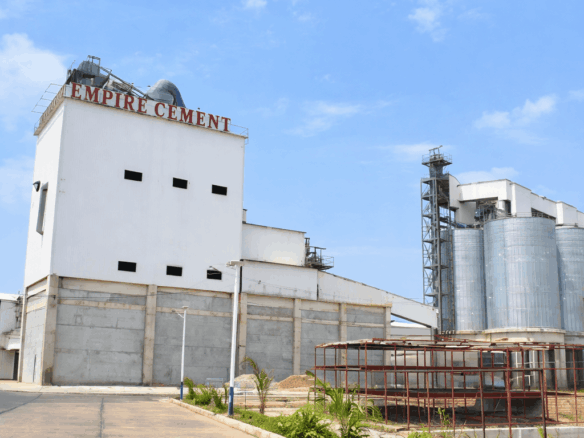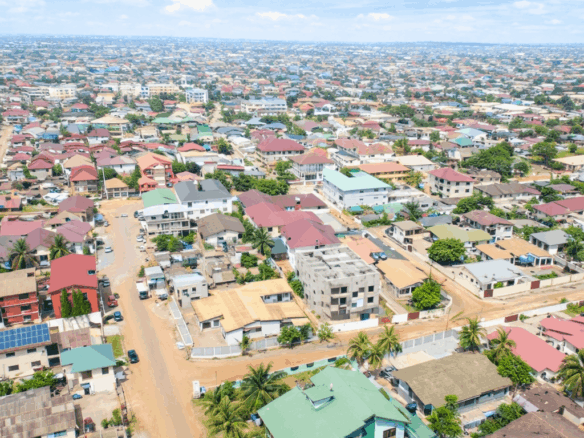Ghana’s real estate market is undergoing a significant transformation, driven largely by proactive government policies aimed at creating a more conducive environment for property investment in Ghana. As an investor looking to tap into the potential of Ghana’s real estate market, understanding these policy shifts is crucial for making informed decisions and developing effective Ghana real estate investment strategies. In this blog post, we’ll take a closer look at how government initiatives are reshaping the real estate landscape in Ghana and what it means for investors.
The Evolving Regulatory Framework
Over the past few years, the Ghanaian government has been actively working to streamline the regulatory framework governing the real estate sector. Key reforms include:
- Simplifying land registration processes: The government has implemented measures to digitize land records and streamline the land registration process, reducing bureaucratic bottlenecks and increasing transparency.
- Strengthening property rights: Efforts have been made to strengthen property rights and enhance the security of tenure, boosting investor confidence in the Ghana property market.
- Introducing real estate investment trusts (REITs): The introduction of REITs has provided a new avenue for real estate wealth creation in Ghana, allowing investors to pool funds and invest in a diversified portfolio of properties.
These regulatory changes are creating a more favourable environment for real estate investment in Ghana, attracting both local and international investors.
Housing Initiatives and Affordable Housing
One of the government’s key priorities has been addressing the housing deficit and promoting affordable housing. Some notable initiatives include:
-
Affordable Housing Program:
The government has launched an ambitious affordable housing program aimed at delivering thousands of low-cost housing units across the country. This presents opportunities for investors to partner with the government in developing affordable housing projects.
-
Rent-to-own schemes:
To make homeownership more accessible, the government has introduced rent-to-own schemes that allow individuals to rent properties with the option to purchase them over time. This is expanding the pool of potential buyers in the market.
-
Infrastructure development:
The government is investing heavily in infrastructure development, including roads, utilities, and social amenities, which is enhancing the attractiveness of various locations for real estate development.
These housing initiatives are not only addressing the housing needs of Ghanaians but also creating new opportunities for real estate investment in Ghana.
Tax Policies and Investment Incentives
The government has also introduced various tax policies and investment incentives to stimulate growth in the real estate sector:
- Tax exemptions: Certain real estate projects, such as affordable housing developments, are eligible for tax exemptions, reducing the cost of investment.
- Capital gains tax waivers: In some cases, real estate investors may qualify for capital gains tax waivers, enhancing the potential returns on their investments.
- Foreign investor incentives: The government has put in place incentives to attract foreign investment in the real estate sector, such as allowing foreign ownership of properties and providing tax breaks for foreign investors.
Understanding these tax policies and investment incentives is key to optimizing your Ghana real estate investment strategies and maximizing your returns.
Zoning Laws and Urban Planning
Zoning laws and urban planning policies play a significant role in shaping property development in Ghana. The government has been working to improve urban planning and ensure sustainable development through measures such as:
-
Comprehensive land use planning:
The government is developing comprehensive land use plans to guide property development and ensure efficient utilization of land resources.
-
Zoning regulations:
Stricter zoning regulations are being implemented to prevent haphazard development and ensure that properties are developed in line with the designated land use.
-
Urban renewal projects:
The government is undertaking urban renewal projects to redevelop and revitalize key urban areas, creating new opportunities for real estate investment.
Staying informed about zoning laws and urban planning policies is crucial for making sound real estate investment decisions in Ghana.
The Road Ahead: Upcoming Policy Changes
The government’s commitment to creating an enabling environment for real estate investment in Ghana is evident in several upcoming policy changes:
-
Land Act 2020:
The Land Act 2020, which is set to come into force, will introduce further reforms to land administration, including the establishment of a Lands Commission to manage all public lands.
-
National Housing Policy:
A new National Housing Policy is in the works, which is expected to provide a comprehensive framework for addressing the housing deficit and promoting sustainable housing development.
-
Real Estate Agency Act:
The government is working on a Real Estate Agency Act to regulate the activities of real estate agents and ensure professionalism in the industry.
As an investor, keeping an eye on these upcoming policy changes will help you stay ahead of the curve and position yourself to capitalize on new opportunities in the Ghana property market.
The government’s proactive approach to shaping the real estate landscape in Ghana presents exciting opportunities for investors. By understanding the policy environment and making informed decisions, you can position yourself to maximize your real estate ROI in Ghana.
Take the first step towards your real estate investment journey in Ghana today. Explore the wide range of properties available on Ghana Property Finder, from affordable housing units to prime commercial spaces. Our expert team is ready to guide you through the process and help you find the perfect investment opportunity. Start creating real estate wealth in Ghana now!
FAQ:
-
How do I navigate the land registration process in Ghana?
The government has streamlined the land registration process through digitization. Consult with a local real estate attorney or agent to guide you through the process.
-
What tax incentives are available for foreign investors in Ghana’s real estate market?
Foreign investors may qualify for tax exemptions and capital gains tax waivers depending on the nature of their investment. Consult with a tax professional to understand the specific incentives applicable to your investment.
-
How can I take advantage of the government’s affordable housing initiatives?
Consider partnering with the government or private developers in affordable housing projects. You can also explore opportunities in the supply chain, such as providing building materials or construction services.
-
What should I consider when choosing a location for real estate investment in Ghana?
Consider factors such as zoning regulations, infrastructure development, and demographic trends in the area. Consult with local real estate experts and conduct thorough due diligence before making an investment decision.
-
How can I stay informed about policy changes affecting the real estate market in Ghana?
Follow reputable real estate market reports and analyses, such as those provided by Ghana Property Finder. Engage with local real estate professionals and industry associations to stay updated on the latest policy developments.
For more insights on Ghana’s real estate market trends and analysis, be sure to check out our other blog posts and market reports. Stay tuned for the latest updates on the Ghana property market and investment opportunities.






